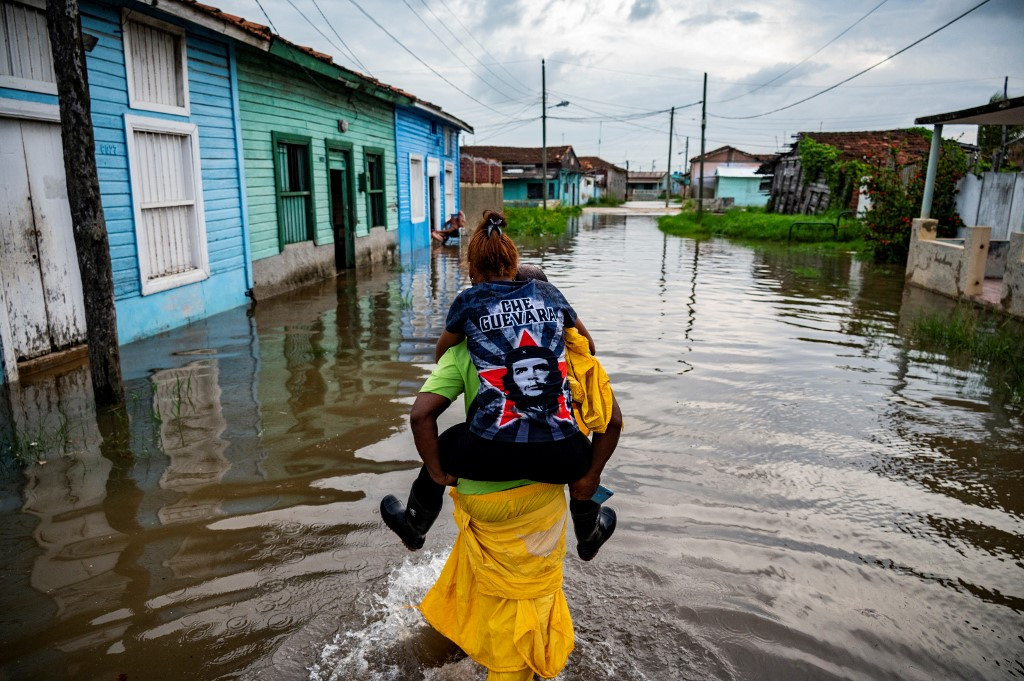Popular Reads
Top Results
Can't find what you're looking for?
View all search resultsPopular Reads
Top Results
Can't find what you're looking for?
View all search resultsExtreme climate event almost led to human ancestors’ extinction: Study
Scientists have grown weary over the rising temperatures on the planet and extreme weather from heat waves to typhoons that have swept across the globe in the past years.
Change text size
Gift Premium Articles
to Anyone
A
genomics study has predicted that ancient population went through a steep decline caused by an extreme climate event that led to a “severe human bottleneck” and came close to wiping out our ancestral line.
The study, published in the Science journal on Thursday, analyzed the composite likelihood for present-day human genomic sequences of 3,154 individuals and found that human ancestors went through a severe population bottleneck between 930,000 and 813,000 years ago with around 1,280 breeding individuals.
“Today, there are more than 8 billion human beings on the planet. We dominate Earth’s landscapes, and our activities are driving large numbers of other species to extinction,” said journal editor Sacha Vignieri.
But that was not the case sometime between 800,000 and 900,000 years ago, she said. She explained that the study detected a steep population decline from around 100,000 to 1,000 individuals that coincided with “major climate change and subsequent speciation events”.
Authored by scientists based in Italy and China, the research aimed to investigate the ancient history of population size during the Pleistocene era. It found that the bottleneck lasted for around 117,000 years and brought human ancestors close to extinction. This bottleneck was also found to be congruent with a substantial chronological gap in the available African and Eurasian fossil records.
“The numbers that emerge from our study correspond to those of species that are currently at risk of extinction,” said Giorgio Manzi, an anthropologist at Sapienza University of Rome and a senior author of the research, as quoted by The Guardian.
“It was lucky [that we survived], but […] we know from evolutionary biology that the emergence of a new species can happen in small, isolated populations,” he said.
Scientists have grown weary over the rising temperatures on the planet and extreme weather from heat waves to typhoons that have swept across the globe in the past years.
In July, nearly 100 Italian scientists wrote an open letter to the media, urging better reporting of the causes and solutions to climate change so steps could be taken to avert crisis.
The letter, sent from Italy’s Climate Media Centre, was also signed by the 2021 Nobel Prize winner for physics, Giorgio Parisi from Sapienza University.
The alert comes as wide swaths of Europe, especially Mediterranean nations including Italy, were hit by extreme heat and fires even as strong storms and hail pelted Italy’s north.
“Heat waves, floods, prolonged droughts and fires are just some of the signs of the intensifying impacts of climate change on our territories,” said the letter signed by 96 scientists, as quoted by AFP, which also cited 18,000 deaths in Italy from last summer’s heat wave.
Many parts of Asia, from India to Indonesia, have experienced severe droughts for the past few months, causing crop failures that prompted countries to ban agriculture commodities like rice and sugar.
Extreme heat waves have boiled China and Japan while typhoons and floods have also swept from China to Australia, causing major losses across the countries.











